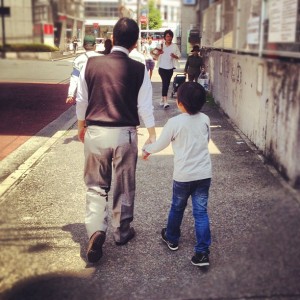Enjoy!
The Struggle For Control
The simple but social fact that our opposition to control, on a much larger scale, has generated most of the monumental changes in our world; and has been an important and critical process of progress and change. It is how we are wired. We humans seem to resist control even more than we resist change…at any age!
It is easy to create the illusion of control. When my boys were young, if I spoke in a loud, sharp voice, they would stop instantly; and for a moment, I was sure I had them! I believed I could control my kids with my voice and sheer determination, but they were really just being forced to pay attention by my strong action and louder-than-normal voice. This is not control, but rather just directs their attention to my issue. I remember the time when I tossed Ian (my older son at age 11) because of his completely unacceptable behavior. Although it was a very short toss to a comfortable landing in the couch, it seemed like I had control at the time because I held the power for a brief moment. But power is not the same as control. It was my fortunate opportunity to establish my dominant position at that time and that time only. Although it came from a place of anger and frustration and is not what I believe is good parenting, it straightened out his attitude and created a clear understanding. However, I never attempted it again.
At age 17, did you really believe that your parent had control over you? At what point do you think your parents lost control and you gained it? These are important questions to ask ourselves because they reach the root of our perceptions of control, as well as our instinct to rebel against anything that resembles it. The illusion of parental control develops during the child’s early state of dependency, but this temporary dominance will pass quickly and we probably will not become aware of its fading until it is too late to do much about it.
I remember when I first realized that my idea of control was an illusion. Ian, my first son, was just starting to talk, which was wonderful for me because I could begin to communicate with and relate to him. One of his first strongest first words was “no.” When I heard the first “no” from Ian, I was dumbstruck. I could not fathom how he could choose to use it so perfectly and be able to clearly express his choice. When he said, “No,” he was telling me that he wanted to make a different decision. Of course, he was too young to understand all the ramifications of most any decision at that age, but nonetheless, he felt compelled to decide for himself, and was already beginning to wrestle control from me, control I really didn’t have. By trying not to exert my control I was able to focus on other aspects of our expanding relationship with more joy, less tension, and depth.

No comments:
Post a Comment